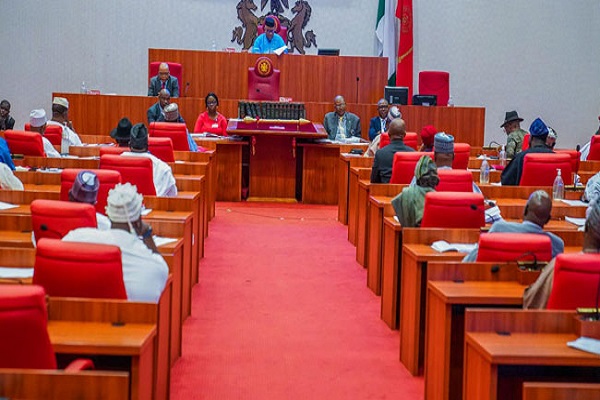News
How Nigerian table tennis players can reach their full potential — LSTTA Chairman

Tunji Lawal, Chairman, Lagos State Table Tennis Association (LSTTA) says Nigerian table tennis players can reach their full potential with the right mentality ,the right fitness level and adequate exposure.
Lawal said this in an interview with the News Agency of Nigeria (NAN) on the sidelines of the graduation ceremony of the ‘Break the Bias, She Can’ initiative in Lagos.
The programme was organised by Additional Plus Sports and Education Initiative (APSE) in partnership with Lagos State Sports Commission (LSSC).
NAN reports that ‘Break the Bias, She Can’, is a programme designed to train school girls in taekwando and table tennis as well as provide them with political education.
50 girls graduated at the ceremony, held at the Rowe Park Sports Centre, Yaba, Lagos.
Lawal said Nigerian players were not doing better than many of their opponents in other countries because they do not have the right mentality,the right fitness level as well as adequate exposure.
He said the poor performance of the country’s players at the recently-concluded World Table Tennis (WTT) Contender in Lagos was a proof that they needed to do a lot to match their counterparts in China ,Korea and elsewhere.
`The rate at which international players are exposed, going from one tournament to another, their training regimes, and the facilities at their disposal ,are the reasons they are better than our players.
“These players are always careful about what they eat; they don’t indulge in junks and they also monitor their diets.However, Nigerian players don’t have same.They eat whatever comes their way.
“To me, an average Nigerian player is kind of overweight for the game ,and so, finds it difficult to keep up with the standard of the game.
“Nigerian players lack fitness in terms of movement, foot work, agility and other technicalities. We seriously need to restrategise”,he said .
Lawal added: ” Being a professional is a holistic thing; It is not about knowing how to play alone, it is about what you eat and your mentality.
“Athletes must be flexible.They must have pace and be able to move easily.So the way to go now is to encourage the younger ones to take over from the older ones.
“Hana Goda of Egypt became an African Champion at a very young age of 12 , now going to 15 years. She started at a very young age.
“This is why we are encouraging more youngsters in table tennis and encouraging academies to spring up all over Nigeria.”
Lawal said he believed the future of table tennis is bright in Nigeria and that the country should focus on discovering young talents and nurture them to become world champions .
He said ‘Break Bias ,She Can ” initiative was conceived to provide opportunities for young girls and help them to grow in the game.
“The future is bright . We can have players to replace someone like Funke Oshonaike and do better in the global stage.
“If the likes of Aruna Quadri can develop from the street without much support, with opportunity like the `Break the Bias, She Can’ the children can have a better opportunity.
“Our young children can grow with better system, so we are working assiduously to create a better system which will work for us just as it is being done abroad,” he said.
Lawal also urged the state governments to invest in table tennis in order to develop the sport.
He appealed to the Lagos State Government to help with sports infrastructure in order to aid the development young athletes.
“We want to implore the state governments ,especially, the Lagos State to support us and provide enough facilities to be able to develop this game. Lagos was once the best state in table tennis ,while Nigeria was the best in Africa.
“Today, we are struggling to keep up right now because there are no tables, no facilities, no playing hall and all of these are affecting the sport in Lagos.
“As an association, we are doing our best to give all that we can to make the game grow.
“Our Asoju Oba Table Tennis Championship this year will be better- organised. And being the fifth year, the grand prize will be bigger because we are in talks with the sponsors,” he said.
Reading books ,writing materials and certificates of participation were presented to participants at the graduation ceremony.
Headline
Prince Harry visits sick Nigerian soldiers in Kaduna

Prince Harry and his team visited the 44 Nigerian Army Reference Hospital in Kaduna to interact with wounded soldiers who are receiving treatment.
The Duke of Sussex is in Nigeria with his wife to champion the Invictus Games, which Harry founded to aid the rehabilitation of wounded and sick servicemembers and veterans.
Nigeria joined the Invictus Community of Nations in 2022 becoming the first African country to join.
Prince Harry’s visit to Kaduna came 68 years after his late grandmother Queen Elizabeth II visited the state during the time of the late Premier of Northern Region Sir Ahmadu Bello.




News
Senate approves death penalty for drug traffickers

Senate on Thursday, May 9, approved the death penalty for those convicted on the charge of drug trafficking in the country.
The punishment prescribed in the extant NDLEA Act is a maximum sentence of life imprisonment.
The resolution of the Senate followed its consideration of a report of the Committees on Judiciary, Human Rights and Legal Matters and Drugs and Narcotics, National Drug Law Enforcement Agency (NDLEA) Act (Amendment) Bill, 2024.
The Chairman of the Committee on Judiciary, Human Rights & Legal Matters presented the report during plenary, Senator Mohammed Monguno (APC-Borno North).
The bill, which passed its third reading, aims to update the list of dangerous drugs, strengthen the operations of the NDLEA, review penalties, and empower the establishment of laboratories.
Section 11 of the current act prescribes that “any person who, without lawful authority; imports, manufactures, produces, processes, plants or grows the drugs popularly known as cocaine, LSD, heroin or any other similar drugs shall be guilty of an offence and liable on conviction to be sentenced to imprisonment for life” was amended to reflect a stiffer penalty of death.
Although the report did not recommend a death penalty for the offence, during consideration, Senator Ali Ndume moved that the life sentence should be upgraded to the death penalty.
During a clause-by-clause consideration of the Bill, Deputy Senate President Barau Jibrin, who presided over the session, put the amendment on the death penalty to a voice vote and ruled that the “ayes” had it.
But Senator Adams Oshiomhole objected to the ruling, saying that the “nays” had it.
He argued that matters of life and death should not be treated hurriedly, but Barau said it was too late, as he failed to call for division immediately after his ruling.
The bill was subsequently read for the third time and passed by the Senate.
-

 Headline6 days ago
Headline6 days agoSuspend cybersecurity levy– Reps to CBN
-

 Business6 days ago
Business6 days agoNigeria needs over $2bn to revive Ajaokuta Steel Plant, says Minister
-

 Headline3 days ago
Headline3 days agoPrince Harry visits sick Nigerian soldiers in Kaduna
-

 Entertainment3 days ago
Entertainment3 days agoAMVCA Cultural Day: BBNaija’s Neo, Venita win Best Dressed Male, Female
-

 Headline6 days ago
Headline6 days agoTinubu resumes work after foreign trip
-

 News6 days ago
News6 days agoShan George’s money returned to Zenith Bank account
-

 Metro3 days ago
Metro3 days agoEx-Sports Minister laments after hospital neglected him for hours over N80000 deposit



